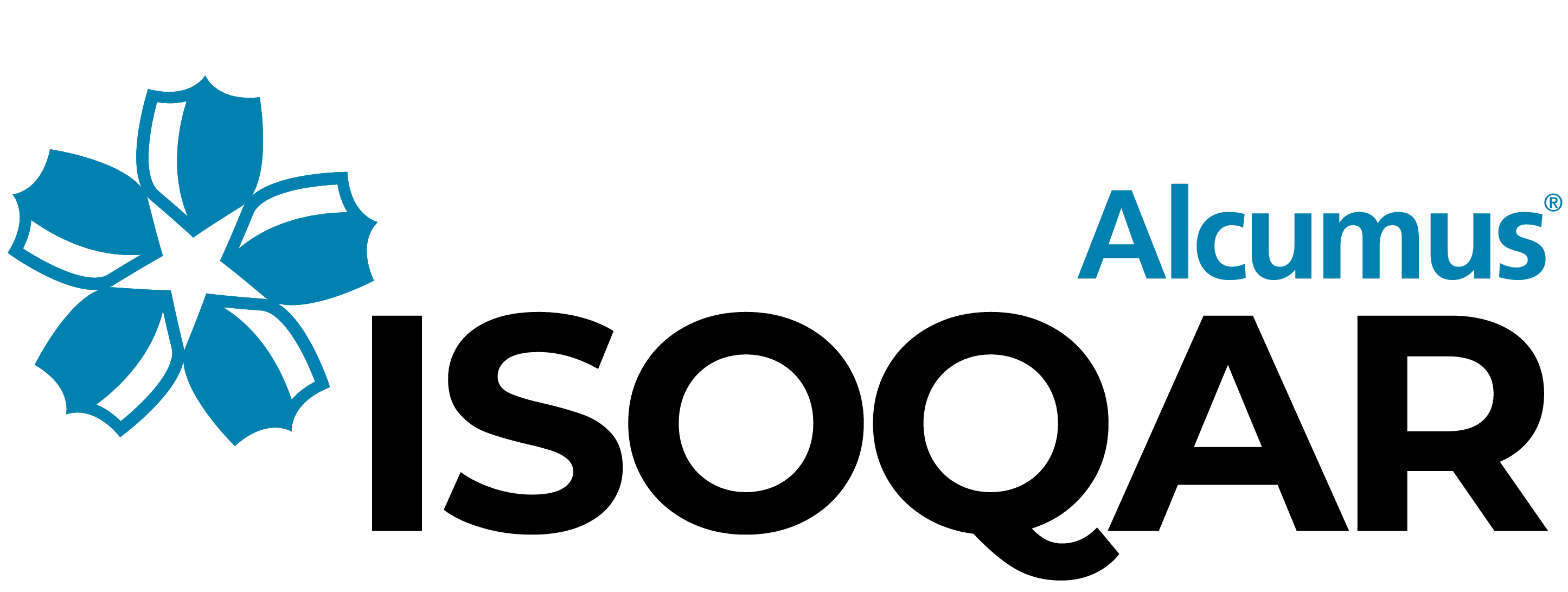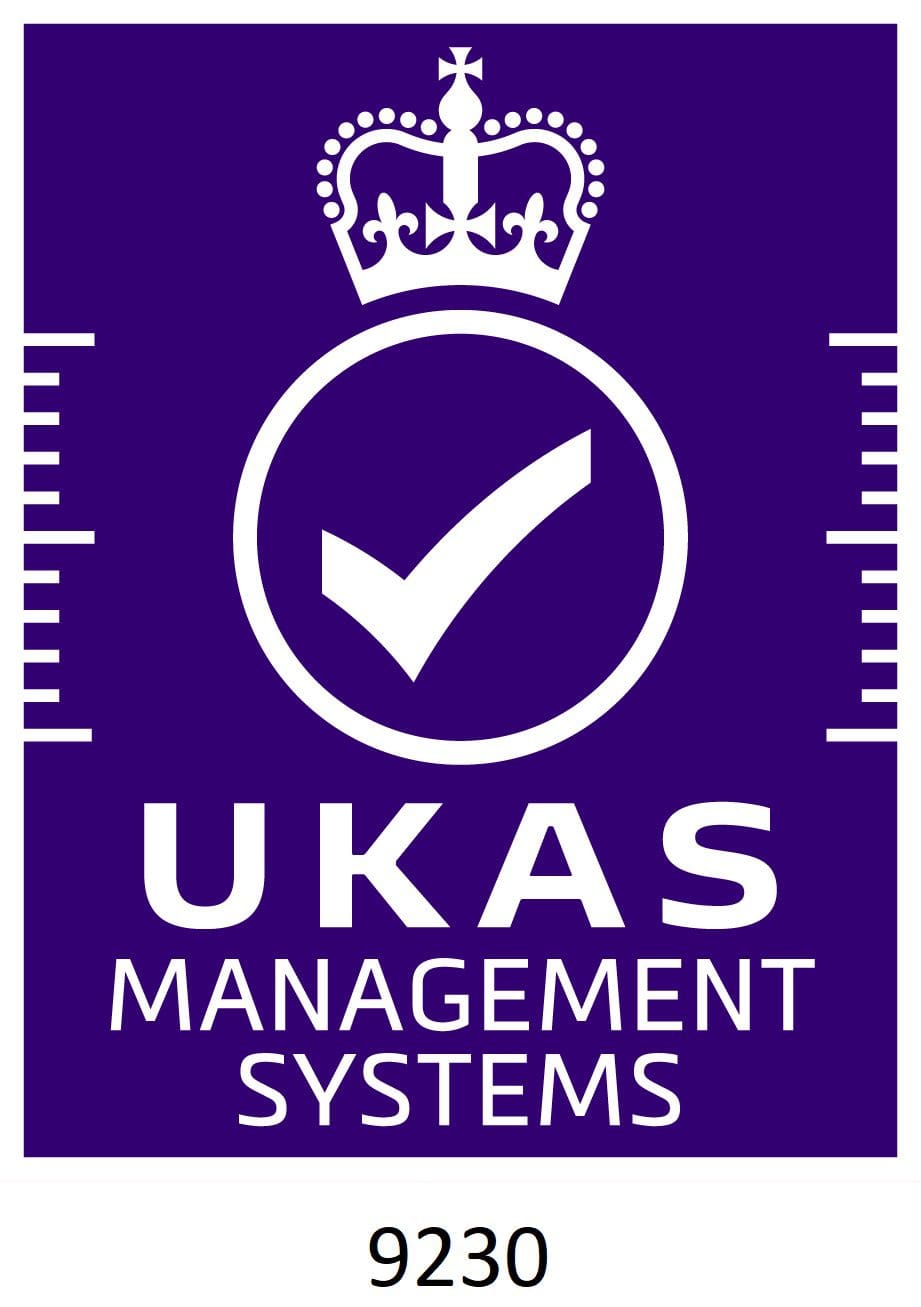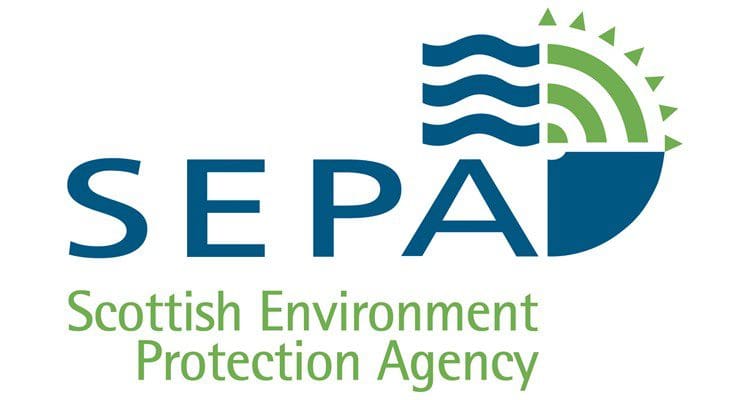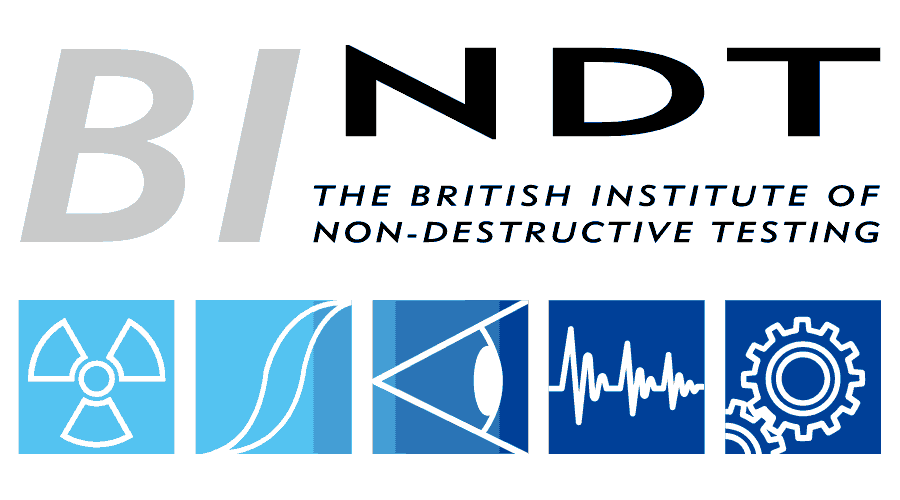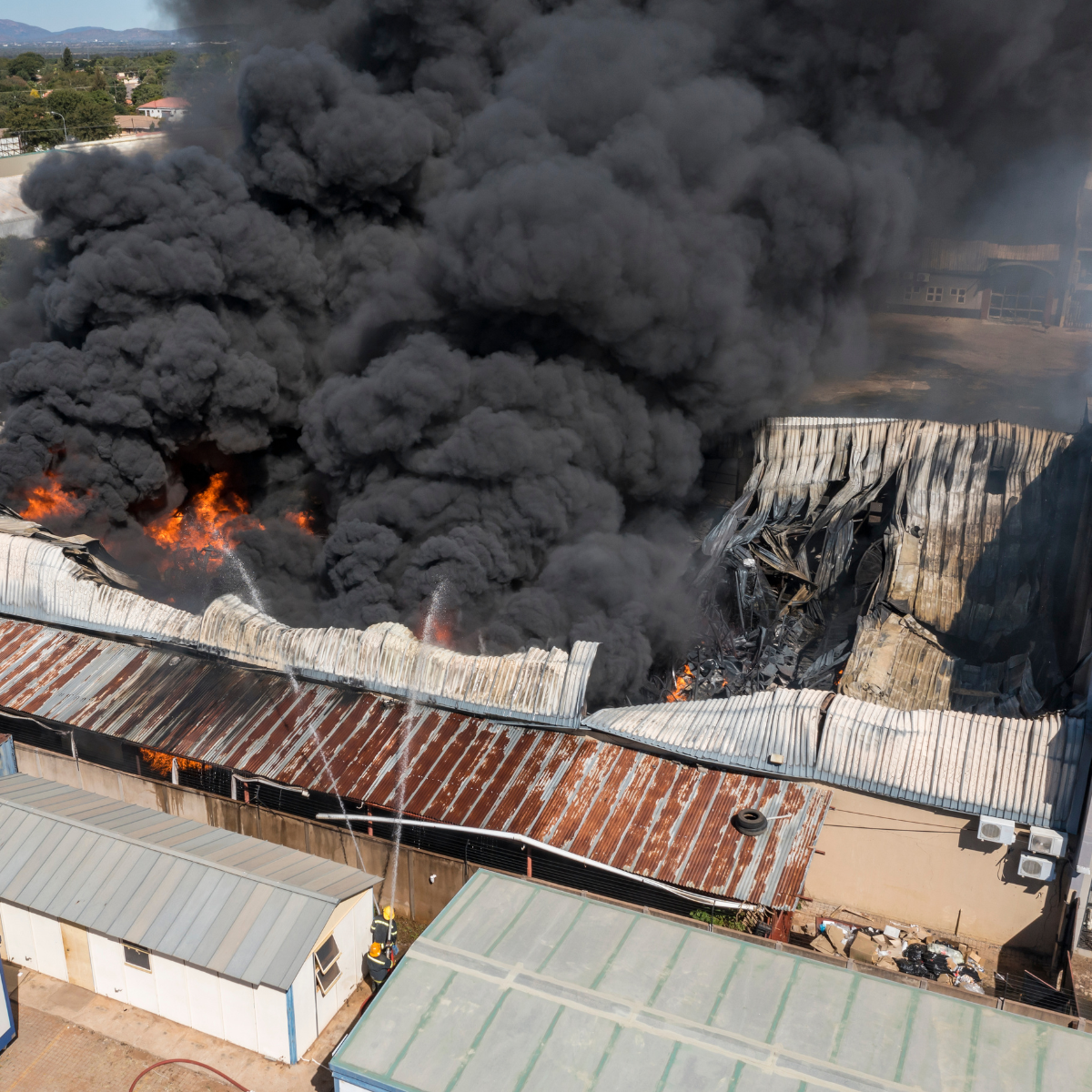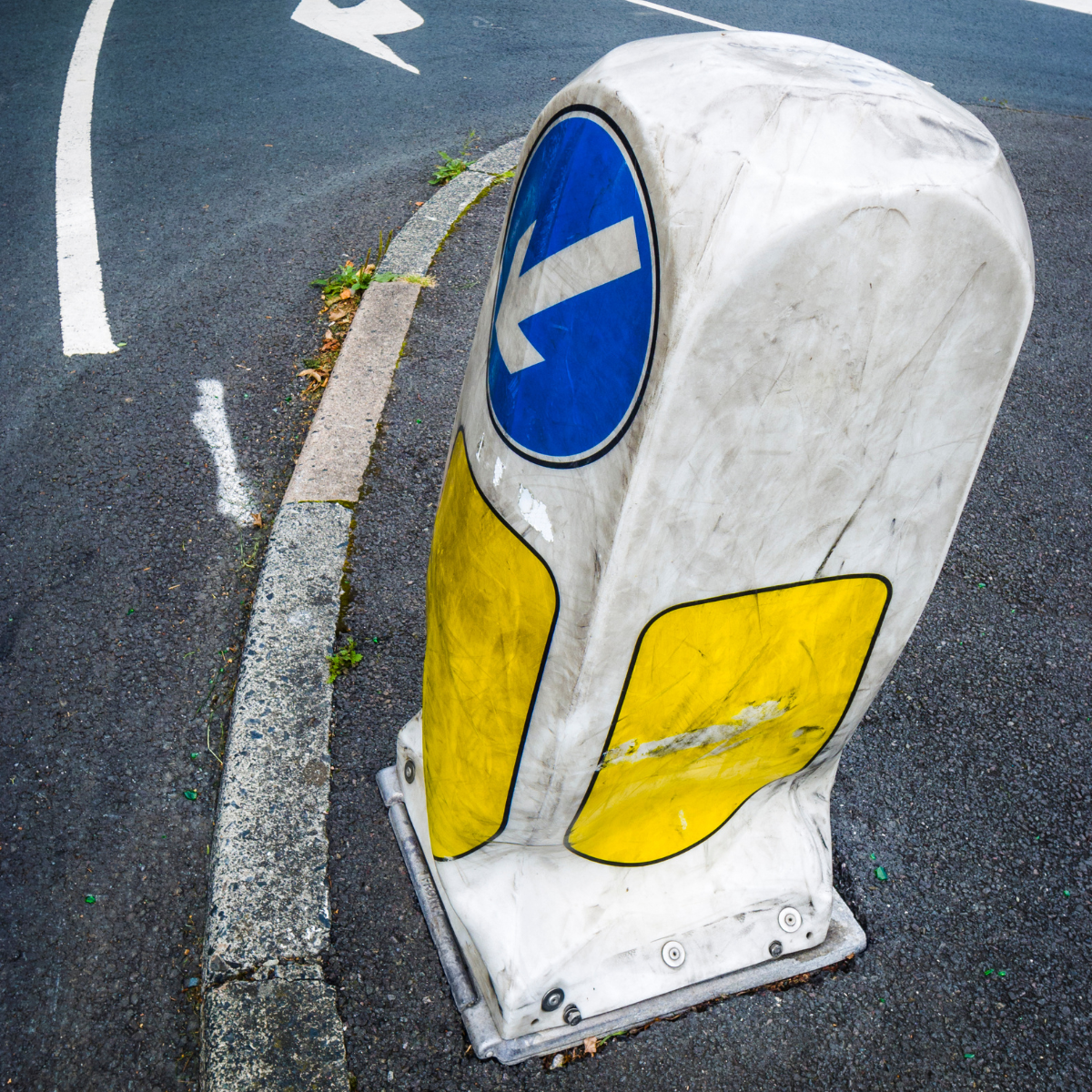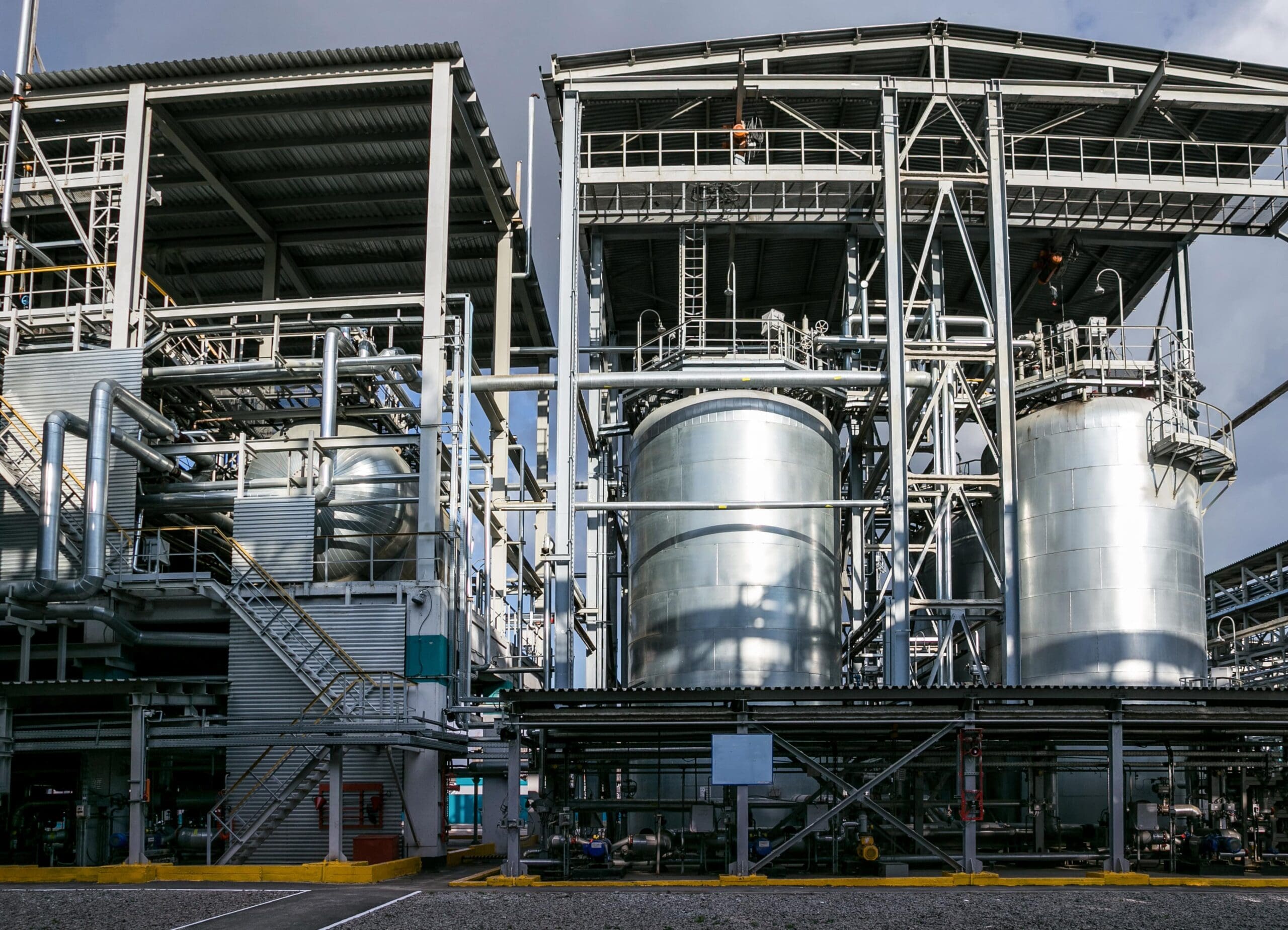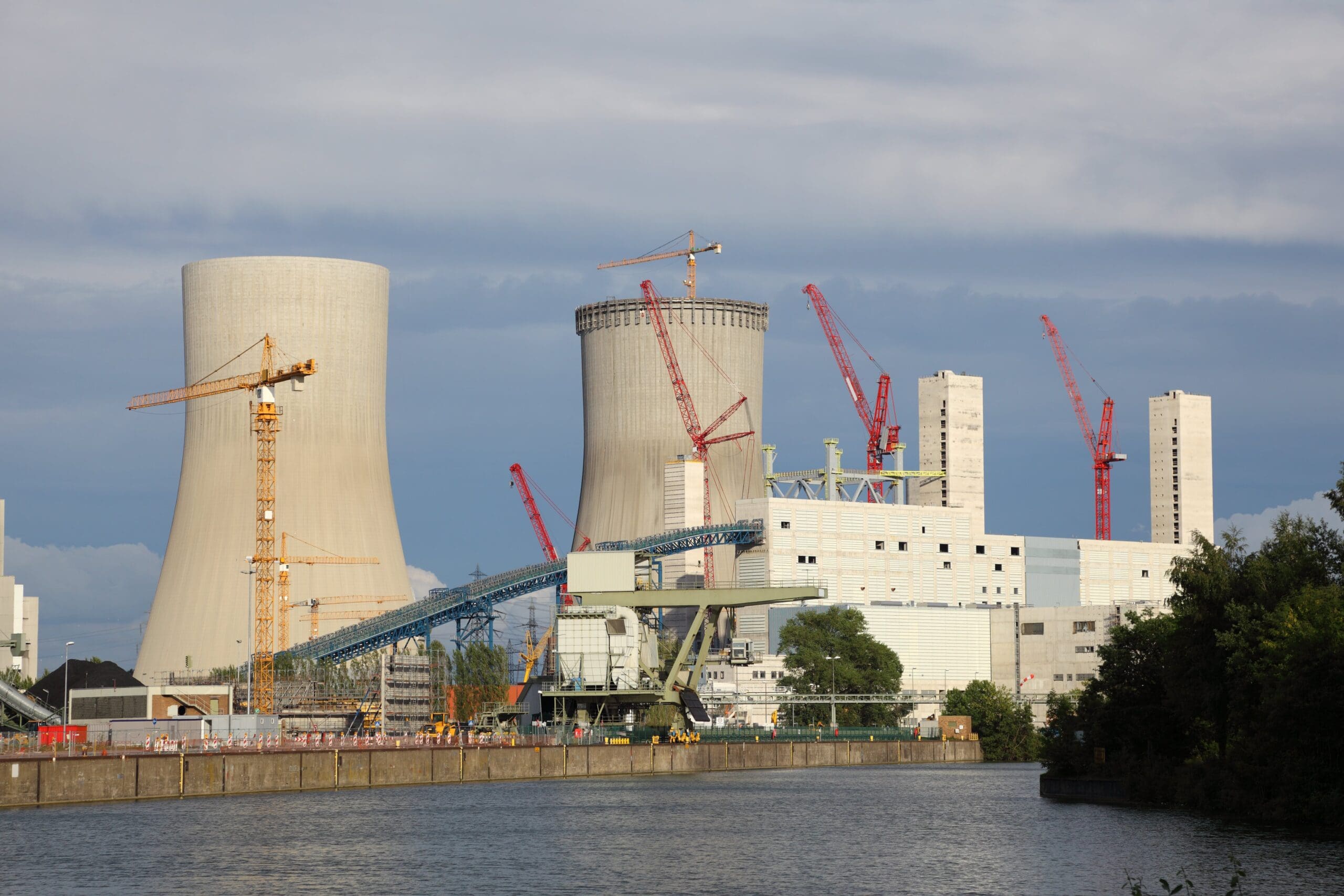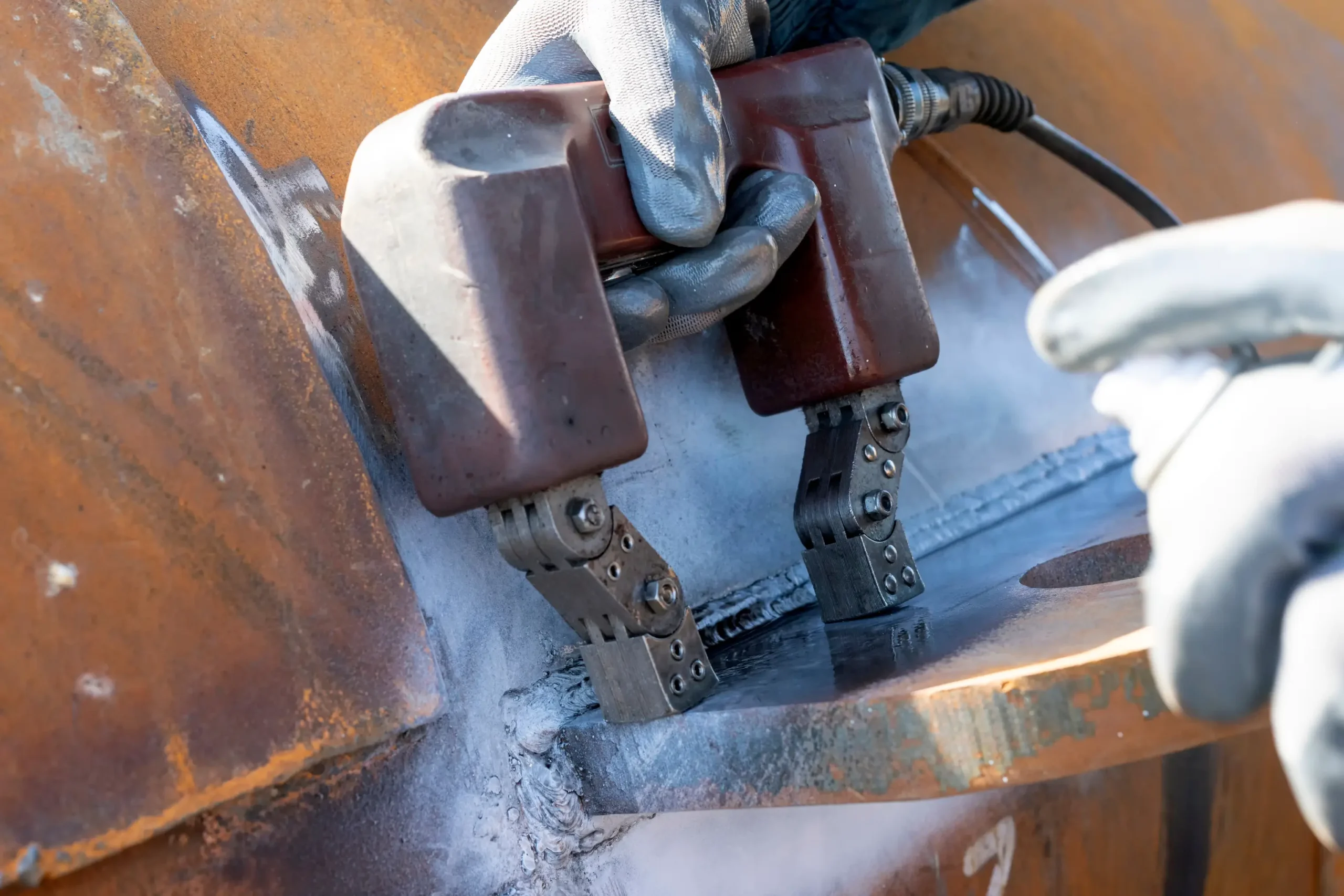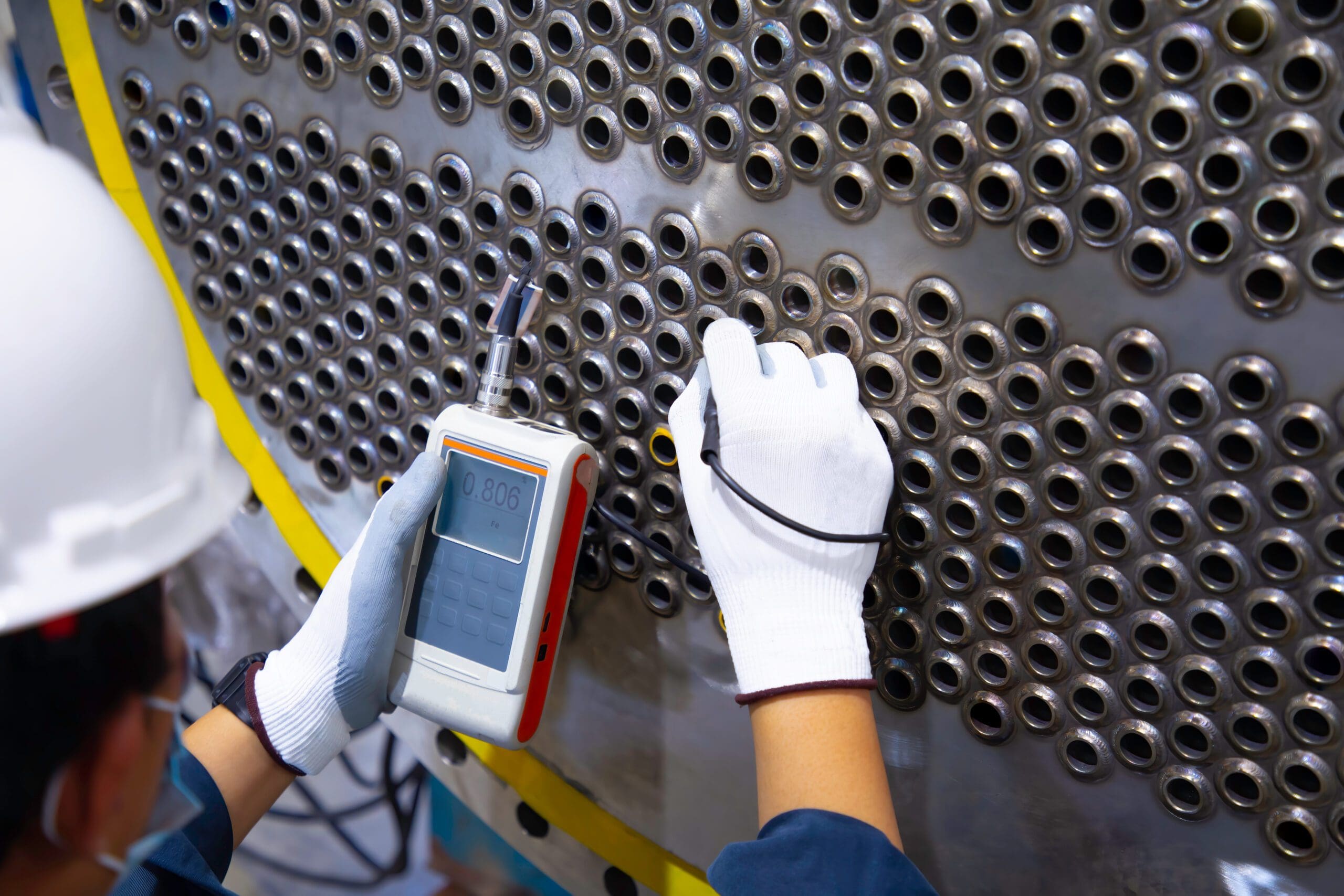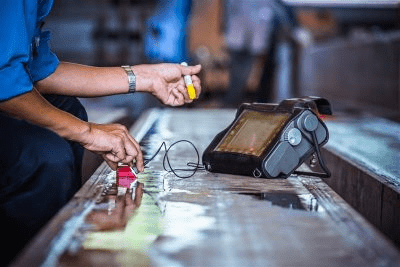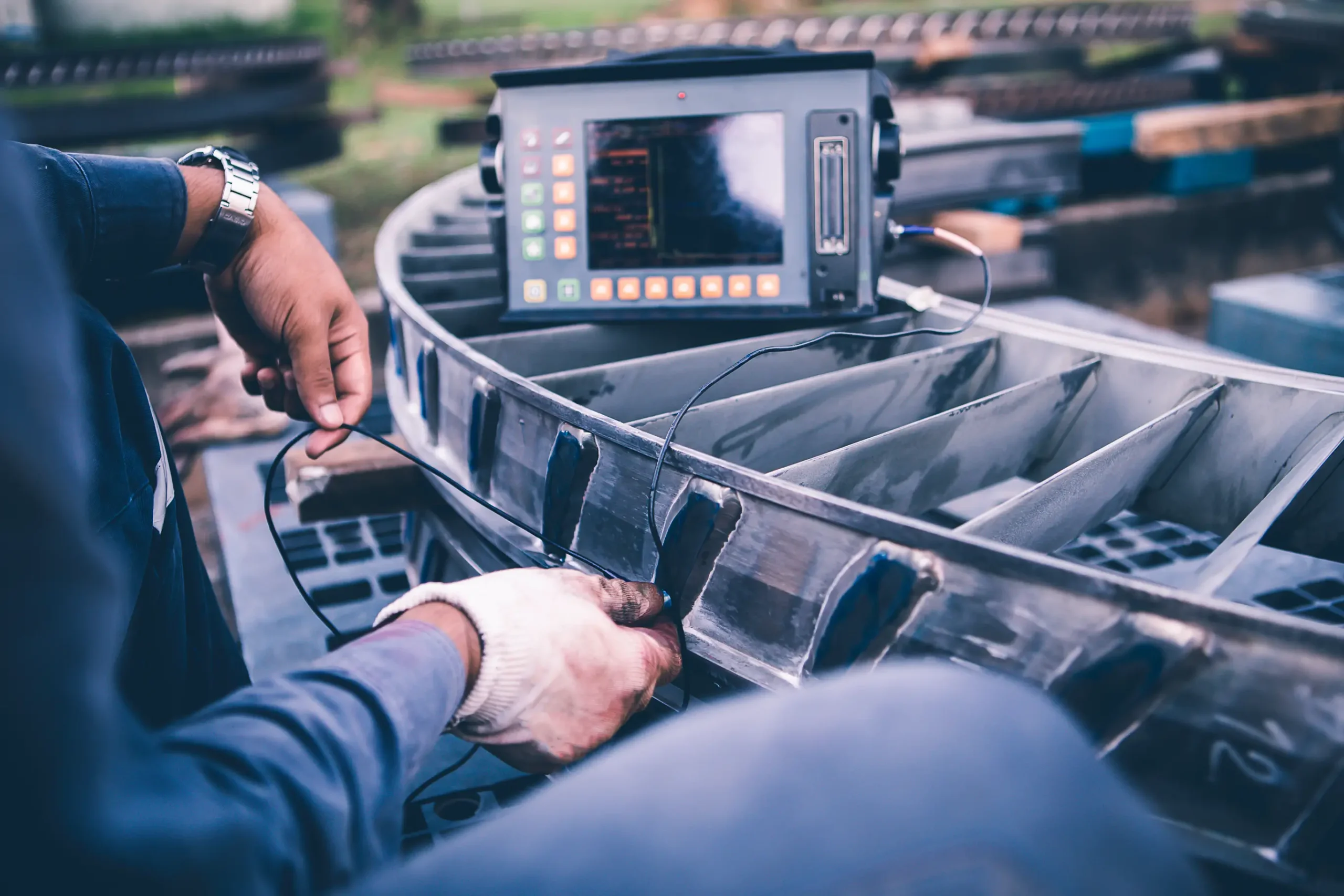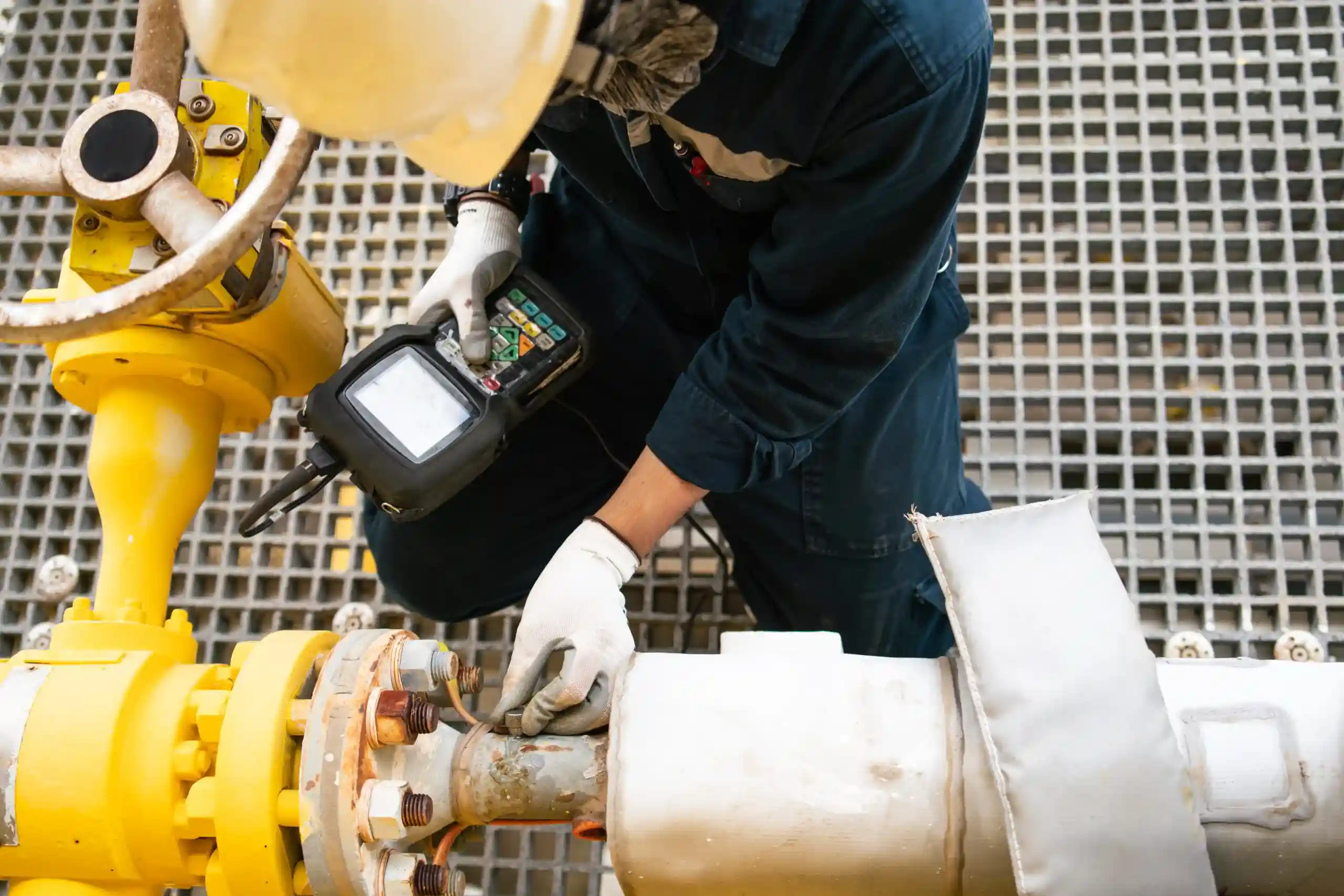Non-Destructive Testing
Dye Penetrant Inspection Services
Dye Penetrant Inspection (DPI) is a Non-destructive Testing (NDT) method that uses dye or a fluorescent penetrant to find surface-breaking flaws which ensure the safety, integrity, and long-term reliability of your operations.
Explore how we work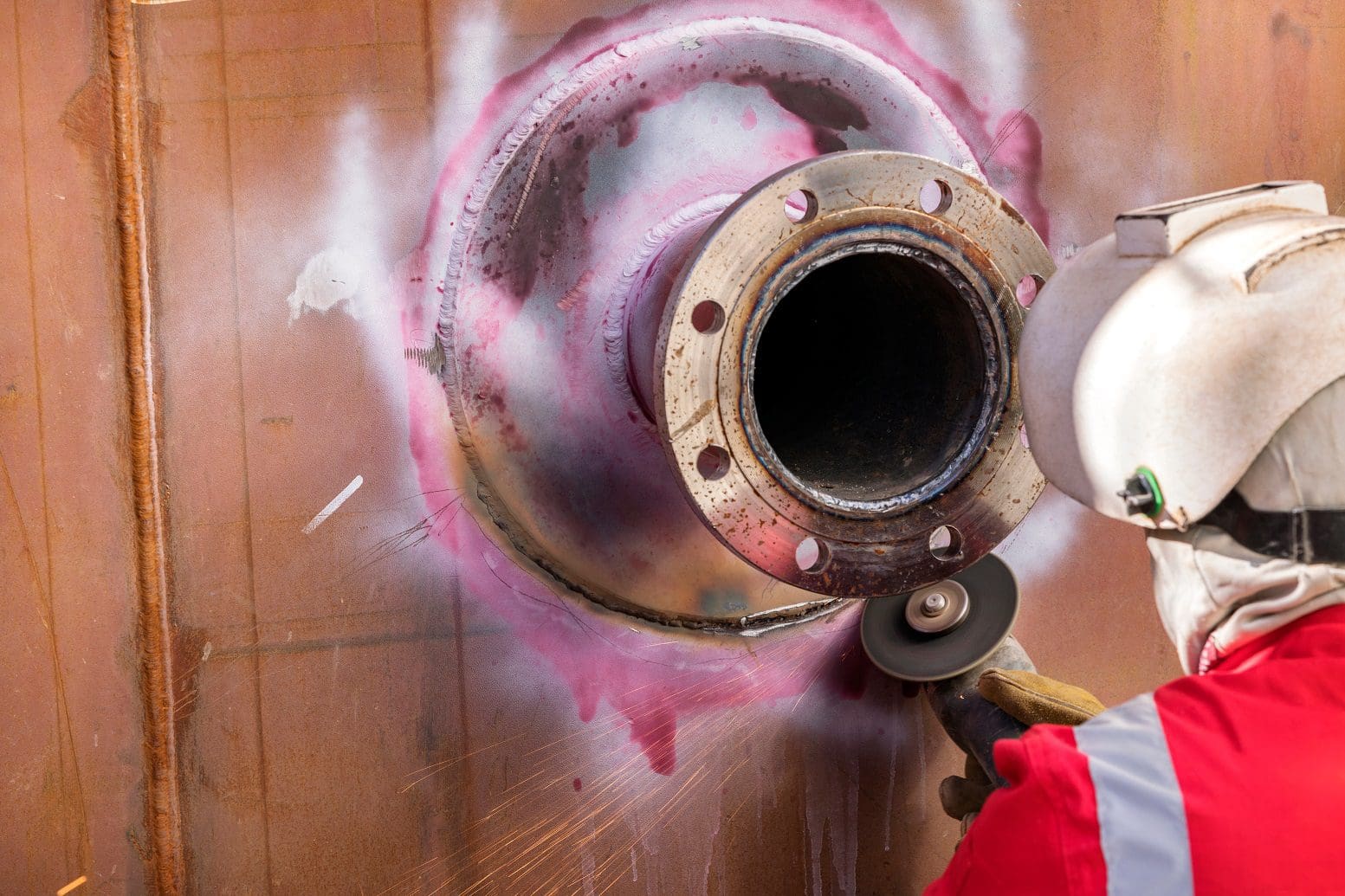
Interested? Let’s talk.
Send us an enquiry
What is Dye Penetrant Inspection?
Dye Penetrant Testing, also known as Liquid Penetrant Inspection (LPI) or Penetrant Testing (PT), is a Non-Destructive Testing (NDT) method used to detect surface-breaking flaws in materials that cannot be seen through visual inspection alone.
This method involves applying a special dye to the surface of a material, which seeps into even the smallest cracks and voids. A developer is then applied, drawing out the dye and making these imperfections clearly visible.
DPI Testing effectively detects hidden flaws that could weaken a component. While commonly used for castings, welds, and forgings, it also applies to wide spectrum of non-porous materials such as metals, plastics, composites, and glass, adapting easily to both intricate parts and large structures.
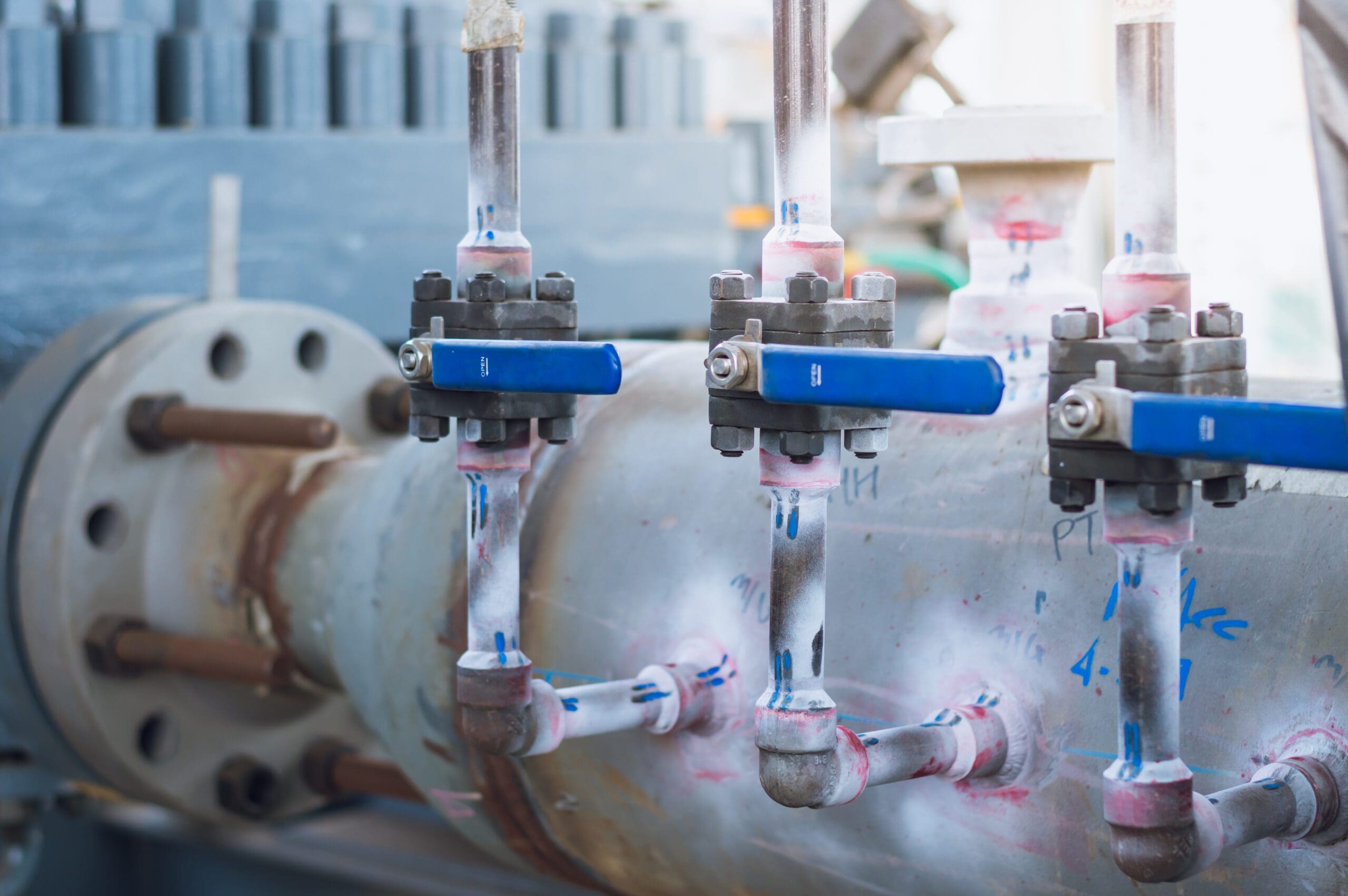
Who we've partnered with...





Key benefits of Liquid Penetrant Inspection
High sensitivity
Dye Penetrant Inspection can detect even the smallest or most subtle flaws that may be invisible to the naked eye.
Material versatility
Its adaptability extends to a wide range of materials, including metals, plastics, composites, and glass.
Portability
DPI Tests can be performed on-site, making it ideal for inspecting large or complex components in place.
Cost-effective and efficient
A quick and affordable testing method that delivers immediate results.
Let's talk about Liquid Penetrant Inspection
Send one of the team a message
Not seeing what you expected?
Try using our search
Explore what our clients say


How we'll work with you
At BES Group, we prioritise flexibility and expertise to deliver the highest standard of testing for your business.
Flexible testing options
We offer flexible testing solutions to fit your needs. Our independent laboratory allows us to perform Dye Penetrant Testing in a controlled environment, or we can come directly to your site for on-location testing.
Qualified and experienced technicians.
Our team of highly skilled NDT technicians is qualified to perform Dye Penetrant Inspections on a wide range of materials and components. Interpreting test results can be complex, but we’re here to help. All our technicians hold a minimum PCN Level 2 certification. This ensures we not only deliver accurate testing but also help you understand and interpret the results with confidence.



Our process
Speak to us about the processDye Penetrant Inspection follows a systematic approach, ensuring accurate detection of surface-breaking flaws with minimal disruption.


Let’s talk. Ask us anything.
Send one of the team a message
Why choose BES Group?

800+ expert engineers
Our team of skilled engineers possesses a wealth of expertise.
A legacy of 160+ years of experience
We’re always evolving our approach to future proof our services.

35,000 satisfied customers
A strong reputation for providing exceptional service.
Frequently asked questions
What types of issues can Dye Penetrant Testing detect?
A Dye Penetration Test is most often used for surface examinations and defect indications in non-ferromagnetic materials. This method also detects surface defects in non-magnetic material, including:
- Surface cracks
- Toe cracks
- Crater cracks
- Surface porosity
- Geometric discontinuities
- De-laminations
- Inclusions
What types of materials can be inspected with Dye Penetrant Inspections?
Dye Penetrant Inspections can be used to inspect a wide range of materials including, but not limited to:
- Glass
- Composites
- Plastics
- Metals
- Ceramics
What are the limitations of Dye Penetrant Inspection?
Dye Penetrant Inspection is effective for detecting surface-breaking flaws, but it can only identify defects that are on or near the surface of a material. It is not as sensitive as other NDT methods, such as ultrasonic testing, and may miss internal defects.
Interpreting the results can be challenging without expertise. However, our PCN Level 2 qualified technicians are always available to assist you in interpreting your test results accurately.
How long does Dye Penetrant Inspection take?
The time required for DPI Tests depends on the size and complexity of the material being tested. Typically, the process is quick and can be completed within a few hours, making it an efficient solution for surface inspections without causing significant downtime or disruption to your operations.
Let's talk about Dye Penetrant Inspection
Send one of the team a message
Sectors we service
Dive into the diverse landscapes where BES Group sparks innovation and drives impact.


Let’s talk. Ask us anything.
Send one of the team a message
Insights & news
Browse our latest articles
Other similar services...
Looking for something else? Explore similar services...
Let’s get you to the right person, fast.
Thank you, enquiry submitted!
Please check your inbox. We have sent you an email receipt of your enquiry.
We treat every enquiry with the upmost urgency. We’ll aim to get in touch with the relevant BES Group specialist and get back to you as soon as possible*.
Thank you again and have a great day.
 About BES Group
About BES Group Accreditations & Credentials
Accreditations & Credentials Our Environmental, Social & Governance
Our Environmental, Social & Governance Careers at BES Group
Careers at BES Group Our Senior Leadership Team
Our Senior Leadership Team